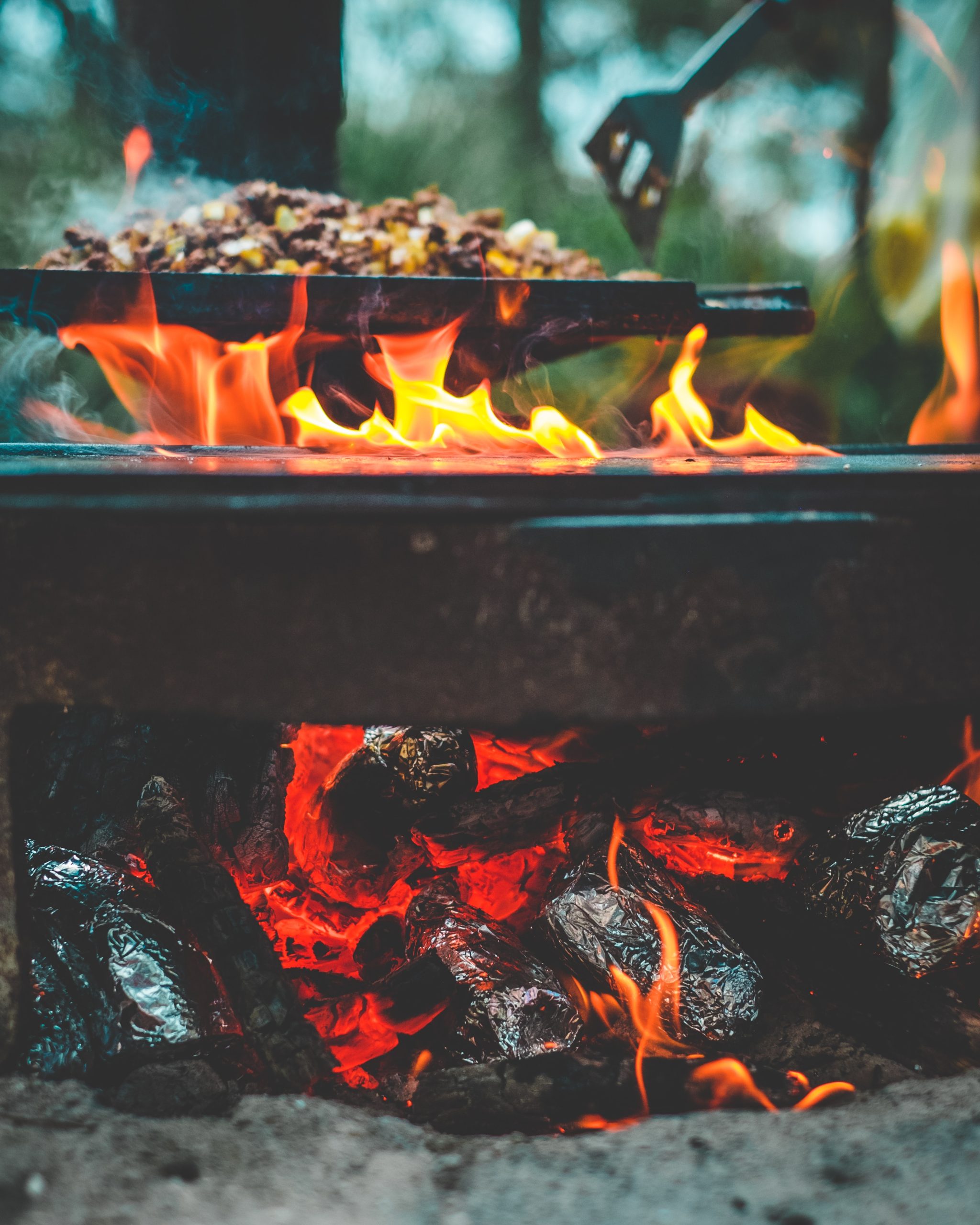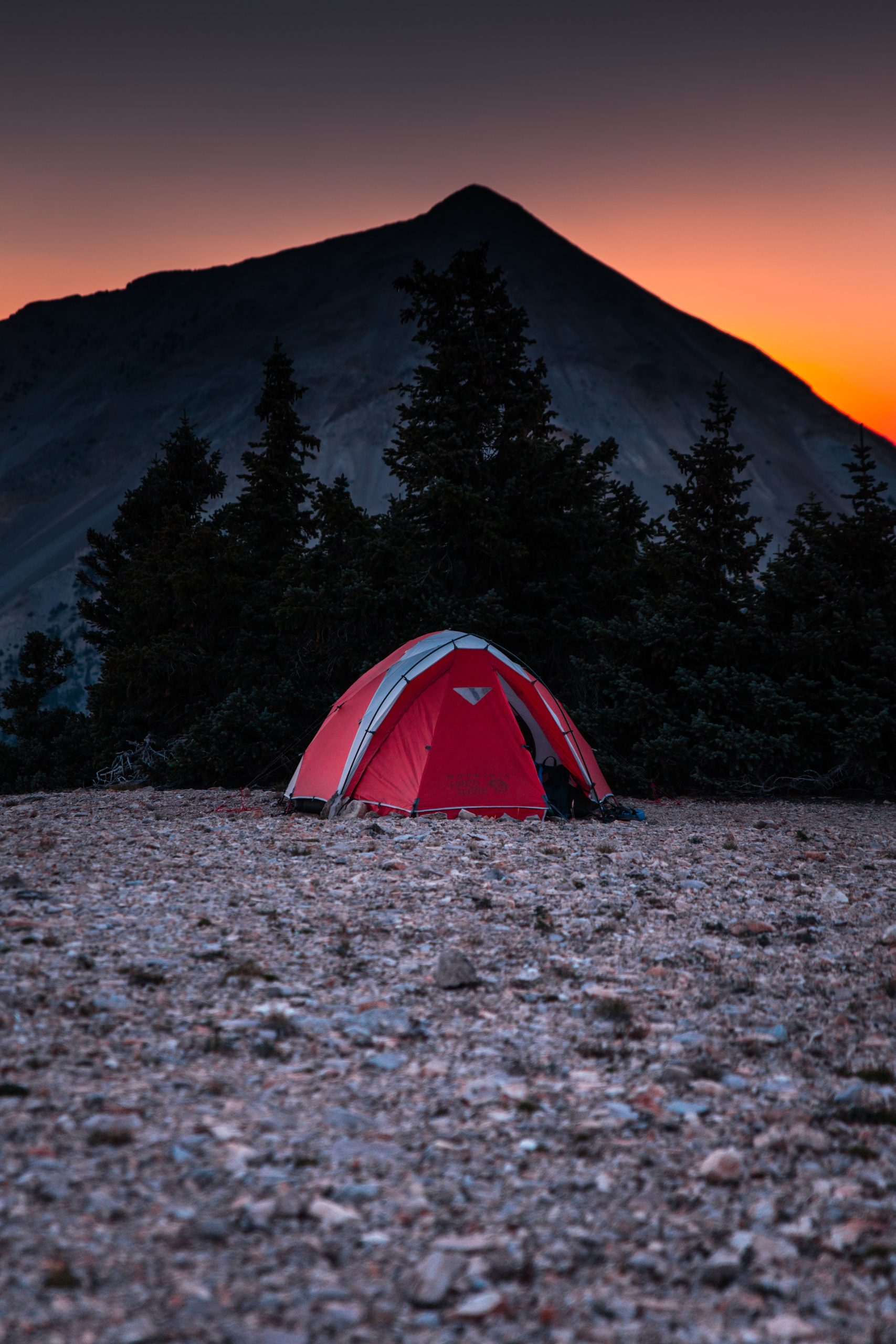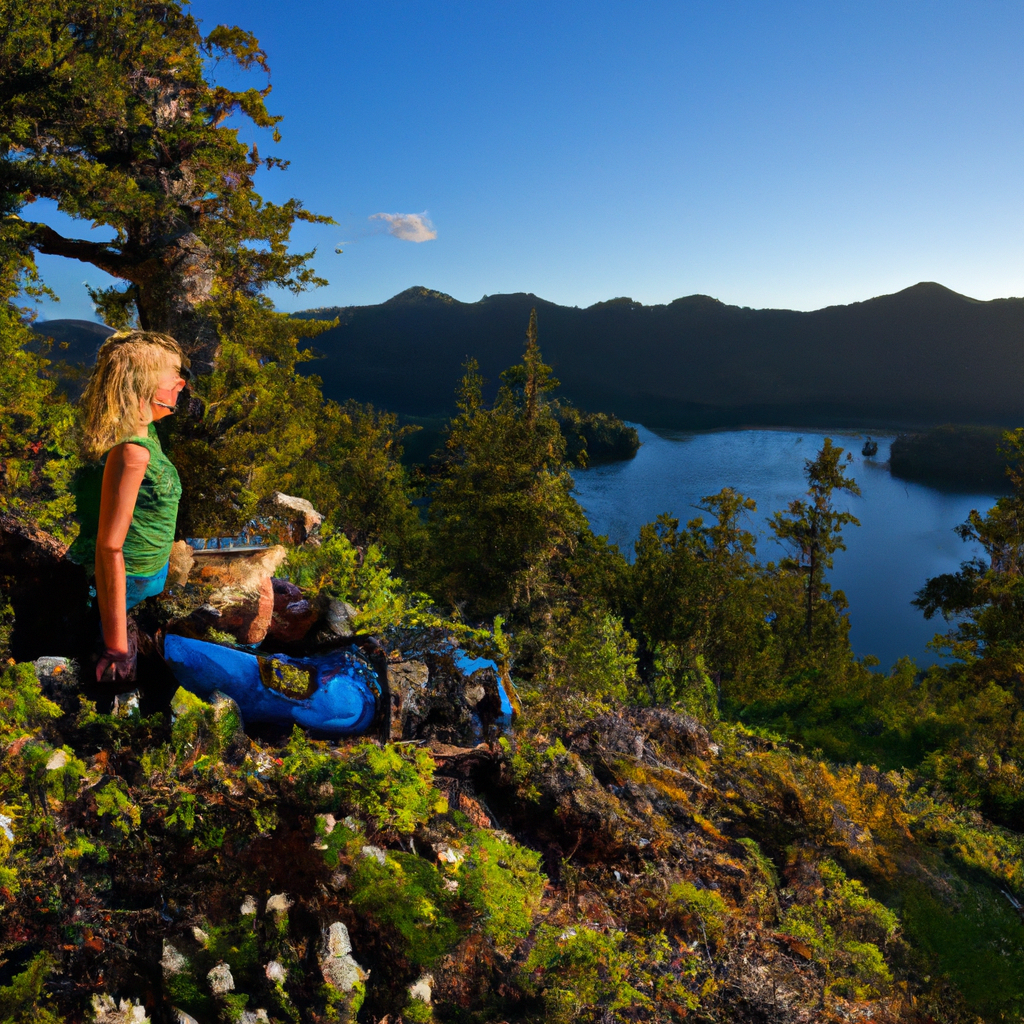Thinking about going tent camping but not sure if it’s safe? In this article, we’ll explore the safety aspects of tent camping and provide you with some helpful tips to ensure a secure and worry-free outdoor adventure. Whether you’re a seasoned camper or a beginner, this article will give you the peace of mind you need to fully enjoy your next camping experience. So, let’s get started and discover how you can make tent camping not only an incredible adventure but also a safe one!

Health and Safety Considerations
Camping is a wonderful outdoor activity that allows you to immerse yourself in nature and disconnect from the hustle and bustle of everyday life. However, it is important to prioritize your health and safety while enjoying this adventurous getaway. In this article, we will explore various considerations and provide tips to ensure a safe and enjoyable camping experience.
Location
Choosing the right location for your camping trip is essential for your safety and overall experience. Research the area beforehand to determine if it is suitable for camping. Look for established campsites that have been approved for recreational use and have proper facilities such as toilets and water sources. These designated areas often come with established safety measures and regulations for campers to follow.
Weather
The weather can greatly impact your camping experience and safety. Before you embark on your trip, check the weather forecast for the duration of your stay. Pack appropriate clothing and gear to protect yourself from extreme heat, cold, or precipitation. Additionally, be prepared for sudden weather changes by carrying extra layers, rain gear, and sunscreen. It is always advisable to have a backup plan in case the weather becomes too severe to continue camping.
Wildlife
One of the most exciting aspects of camping is the opportunity to observe wildlife in their natural habitats. However, it is crucial to understand how to coexist safely with these creatures. Research the local wildlife and be aware of any potential dangers they may pose. Store food properly to prevent attracting animals to your campsite, and never approach or feed them. If you encounter wildlife during your camping trip, keep a safe distance and admire them from afar.
Insects and Mosquitoes
Insects, particularly mosquitoes, can be a nuisance and potentially carry diseases. Protect yourself by using insect repellent and wearing long-sleeved shirts and pants, especially during dusk and dawn when mosquitoes are most active. Set up your campsite away from stagnant water sources where mosquitoes tend to breed. Additionally, consider using mosquito nets or screens to keep bugs out of your sleeping area.
Campfire Safety
Campfires are a classic part of camping, providing warmth, light, and a gathering place for campers. However, you must exercise caution and follow proper campfire safety protocols to prevent accidents. Before starting a campfire, ensure that it is allowed and safe to do so in the area you are camping. Clear a safe area, at least 10 feet in diameter, around the firepit and remove any flammable materials. Always keep a bucket of water or a fire extinguisher nearby to quickly extinguish the fire if needed. Never leave a campfire unattended and fully extinguish it before going to bed or leaving the campsite.
Personal Safety Measures
When camping, taking personal safety measures is crucial to ensure a smooth and secure experience. Here are some important considerations to keep in mind:
Campsite Selection
Choosing the right campsite can greatly contribute to your overall safety. Look for a level and well-drained area to set up your tent, away from any slopes or potential hazards such as dead trees or loose rocks. Avoid camping directly under trees, as falling branches or debris can pose a risk. Additionally, consider the proximity of your campsite to water sources to prevent flooding during heavy rainfall.
Setting Up Camp
Properly setting up your campsite is essential for your safety. Ensure that your tent is securely pitched with all the necessary guy lines and stakes. If camping in an area prone to strong winds, use additional measures such as tie-down straps or extra guy lines to reinforce your tent. Place your cooking area away from your sleeping area to prevent any accidents or unwanted visits from animals. Keep your campsite organized and free from clutter to minimize trip hazards.
Personal Hygiene
Maintaining good personal hygiene while camping is not only important for your comfort but also for your health. Pack biodegradable soap and practice proper handwashing techniques, especially before handling food or eating. Use designated camping toilets or dig a cat hole at least 200 feet away from water sources to dispose of human waste properly. By practicing proper hygiene, you reduce the risk of illness and maintain a clean and enjoyable camping environment.
First Aid and Emergency Preparedness
Accidents and unexpected situations can occur even in the safest of camping environments. Being prepared with a well-stocked first aid kit and knowledge of basic first aid procedures is essential. Include items such as bandages, antiseptic wipes, pain medication, and tweezers for removing splinters or ticks. Familiarize yourself with emergency contact numbers and nearby medical facilities. Consider taking a basic first aid and CPR course to enhance your preparedness.
Equipment and Gear Safety
Ensuring the safety and reliability of your camping equipment and gear is key to a successful camping trip. Here are some important considerations:
Tent Quality and Stability
Investing in a high-quality tent that suits your camping needs is essential for your safety and comfort. Inspect your tent before each trip to check for any damages or weaknesses. Ensure that all zippers, seams, and poles are in proper working condition. Consider purchasing a tent with a rainfly to provide added protection against the elements. Practice setting up your tent at home to familiarize yourself with the process and ensure its stability.
Sleeping Bag and Mat
A good quality sleeping bag and mat are vital for a restful sleep and protection against the cold ground. Choose a sleeping bag appropriate for the climate you will be camping in, considering the temperature rating. Use a sleeping pad or mat to provide insulation and cushioning and prevent heat loss. Inspect your sleeping bag and mat for any damages before each trip, and store them properly to maintain their longevity.
Cooking Equipment
Campfire cooking or using camping stoves can be an enjoyable part of the camping experience. However, it is important to handle cooking equipment safely to prevent accidents and injuries. Follow the manufacturer’s instructions for operating camping stoves and ensure that they are placed on a stable and level surface. Keep flammable materials away from the cooking area and never leave stoves or open flames unattended. Use pot holders or oven mitts while handling hot utensils or cookware.
Lighting and Navigation Tools
Having reliable lighting and navigation tools is crucial for your safety during camping trips. Carry a flashlight or headlamp with extra batteries to navigate around your campsite at night. Additionally, consider packing a map, compass, or GPS device to aid in navigation, especially if you are exploring unfamiliar territory. Familiarize yourself with the area and landmarks to prevent getting lost and always stay on marked trails.
Food and Water Safety
Food and water safety should be a top priority when camping to prevent illnesses caused by contamination. Follow these guidelines to ensure proper food and water handling:
Storing Food Properly
Store food properly to prevent attracting wildlife and minimize the risk of foodborne illnesses. Utilize airtight containers or sealable bags to store food items and discard any spoiled or expired food. Keep perishable food in a cooler with ice packs or use a dedicated bear-resistant food storage container, if required. Hang food bags or use bear canisters to keep them out of reach of wildlife.
Water Sources and Filtration
Finding clean and safe water sources while camping is crucial for hydration and preventing waterborne illnesses. Research the area to determine the availability of potable water sources. If relying on natural water sources such as rivers or streams, use water filtration or purification methods to remove any potential contaminants. Boiling, using water purification tablets, or carrying a portable water filter are effective methods to ensure safe water consumption.
Cooking and Food Handling
Practicing proper cooking and food handling techniques is essential to prevent foodborne diseases. Start by cleaning your hands thoroughly before handling any food. Cook food thoroughly at appropriate temperatures to kill any harmful bacteria. Avoid cross-contamination by using separate cutting boards and utensils for raw and cooked foods. Keep perishable food items refrigerated until ready to cook or consume, and discard any leftovers that have been left out for an extended period.

Campsite Security
Protecting your belongings and respecting campground rules is crucial for maintaining a safe and enjoyable camping environment. Consider these factors:
Personal Belongings
While camping, it is important to secure your personal belongings to prevent theft or damage. Keep valuable items, such as wallets, phones, and cameras, locked in your vehicle or stored in a safe location within your tent. If camping in bear-prone areas, use bear-resistant canisters to store food and scented items. Remember to secure your tent by locking the zippers when leaving your campsite.
Campsite Etiquette
Respecting campsite etiquette not only ensures a positive camping experience for yourself but also for fellow campers. Keep noise levels to a minimum during quiet hours to allow everyone to enjoy a peaceful atmosphere. Dispose of trash properly and ensure that your campsite is clean before leaving. Be mindful of other campers’ privacy and space, and avoid walking through occupied campsites unless necessary.
Campground Rules and Regulations
Each campground may have specific rules and regulations to ensure the safety and well-being of campers. Familiarize yourself with these rules before your trip and abide by them. They may include restrictions on campfires, quiet hours, speed limits, and pet policies. Following these regulations promotes a harmonious camping experience and helps preserve the natural environment.
Public Campgrounds vs. Backcountry Camping
When planning a camping trip, it is important to consider the advantages and disadvantages of public campgrounds and backcountry camping. Explore the following:
Pros and Cons of Public Campgrounds
Public campgrounds offer a range of amenities and facilities, making them convenient for campers seeking a more comfortable camping experience. They typically provide designated campsites with fire pits, picnic tables, toilets, and access to potable water. Public campgrounds are often located near popular attractions and offer the opportunity to socialize with other campers. However, they may be crowded, noisy, and require reservations well in advance.
Pros and Cons of Backcountry Camping
Backcountry camping, also known as wilderness camping, offers a more immersive and secluded experience for those seeking solitude and a closer connection with nature. It allows you to explore remote areas and enjoy the tranquility of the wilderness. Backcountry camping requires hikers to carry all their gear, including camping equipment and food, as there are usually no amenities provided. It is essential to plan and prepare adequately, including obtaining the necessary permits and following Leave No Trace principles to minimize environmental impact.
Permits and Regulations
Regardless of whether you choose public campgrounds or backcountry camping, it is important to understand and comply with the permits and regulations in place for your chosen location. Some areas, particularly national parks and protected wilderness areas, may require permits for camping. These permits help manage visitor numbers, protect sensitive ecosystems, and ensure the safety of campers. Familiarize yourself with the specific regulations and obtain any necessary permits before embarking on your camping trip.

Preparing for Unexpected Situations
Camping in the great outdoors comes with its fair share of uncertainties. It is important to be prepared for unexpected situations to ensure your safety. Consider the following scenarios:
Weather Changes
Weather can rapidly change while camping, and it is important to be prepared for various conditions. Carry extra clothing layers, rain gear, and warm clothing even during warmer months. Monitor weather forecasts regularly and have a backup plan if severe weather is expected. Be prepared to seek shelter or evacuate if necessary.
Lost or Injured
In the event of getting lost or injured, staying calm and prepared can make a significant difference. Before your trip, familiarize yourself with the area you will be camping in. Carry a map, compass, or GPS device to aid in navigation. Inform someone of your itinerary and expected return time. If injured, assess the situation and administer appropriate first aid. If lost and unable to find your way, stay put and wait for help.
Wildlife Encounters
While it is exciting to encounter wildlife during camping trips, it is important to approach these encounters with caution. Maintain a safe distance from animals and never feed or approach them. Store food properly to prevent attracting wildlife to your campsite. Familiarize yourself with the signs and behaviors of the local wildlife, and if traveling in bear country, take necessary precautions such as bear-proofing your campsite and carrying bear spray.
Natural Disasters
Natural disasters such as earthquakes, wildfires, or floods can have a significant impact on camping trips. Stay informed about the current conditions and any potential hazards in the area you plan to camp in. Follow evacuation orders and emergency procedures if required. Have emergency supplies such as food, water, and a first aid kit readily available. Pay attention to weather alerts and be prepared to take appropriate action.
Safety Tips for Solo Campers
Camping solo can be a rewarding experience, allowing you to connect with nature and enjoy solitude. However, it is important to prioritize safety. Here are some tips for solo campers:
Informing Others
Before embarking on a solo camping trip, inform a trusted friend or family member of your itinerary. Provide them with details of your planned route, estimated return time, and any emergency contact information. Regularly check in with someone during your trip to update them on your whereabouts.
Choosing the Right Campsite
Opt for campsites that are well-populated and frequented by other campers, especially if you are new to solo camping. Having others nearby can provide a sense of security and assistance if needed. Consider campsites with good cell phone reception or nearby access to emergency services.
Self-defense and Emergency Measures
While camping solo, it is essential to be prepared for potential emergencies or self-defense situations. Carry a whistle or personal alarm that can be used to attract attention in case of danger. Familiarize yourself with basic self-defense techniques and carry a suitable deterrent such as bear spray or a whistle with built-in pepper spray. Trust your instincts and avoid situations or people that make you feel uncomfortable or unsafe.

Camping with Children
Camping with children can be a memorable and enriching experience for the whole family. It is important to prioritize their safety and well-being. Consider the following:
Childproofing the Campsite
Before allowing children to explore the campsite, ensure that it has been properly childproofed. Remove any potential hazards such as sharp objects, poisonous plants, or loose rocks. Establish clear boundaries and teach children to stay within designated areas. Store camping gear and equipment safely out of reach.
Supervision and Safety
Children should always be closely supervised while camping to prevent accidents or injuries. Be attentive to their whereabouts and ensure they are not wandering off alone. Teach them basic safety rules such as staying away from the fire, not approaching wildlife, and informing an adult if they feel unsafe.
Teaching Outdoor Skills
Camping provides an excellent opportunity to teach children important outdoor skills. Teach them how to set up a tent, safely build a campfire, and navigate with a map and compass. Teach them about wildlife encounters and appropriate behavior in nature. Encourage them to respect and appreciate the natural environment.
Conclusion
Camping can be a safe and enjoyable activity when proper health and safety measures are taken. By considering location, weather, wildlife, personal safety measures, equipment and gear safety, food and water safety, campsite security, choice of camping style, preparedness for unexpected situations, solo camping safety, and camping with children, you can ensure a memorable and secure camping experience. Prioritize your well-being, follow proper safety guidelines, and immerse yourself in the wonders of the great outdoors. Happy camping!





